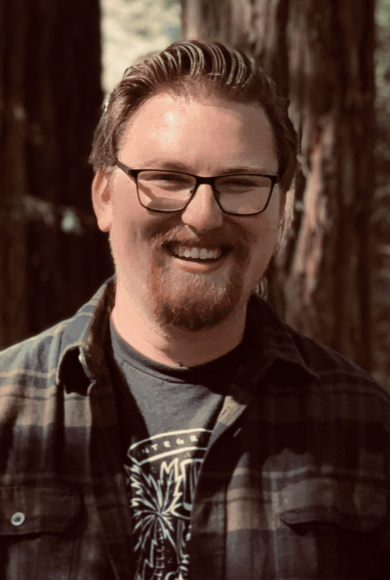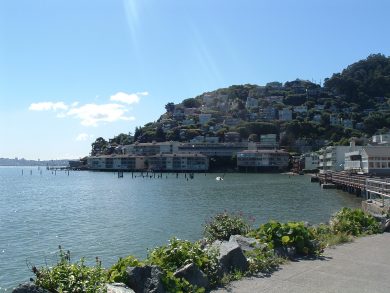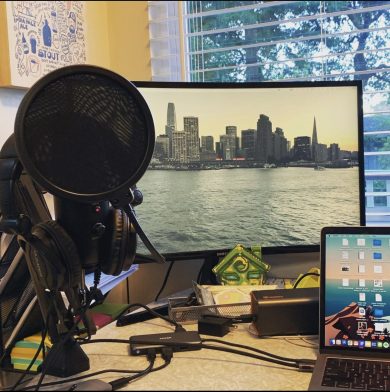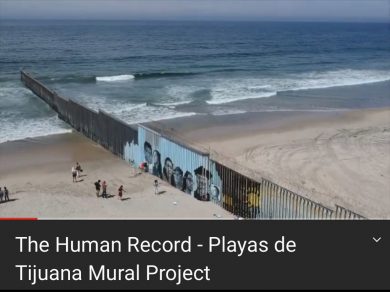
David Duncan is a PhD Student in the History Department at UC Santa Cruz. Deploying oral history methodologies and with an eye toward the public Humanities, he specializes in the history and impacts of school desegregation in the Bay Area. Duncan examines how studying this history expands our understanding of a process that is perhaps most frequently thought about in relation to the Jim Crow South.
In March, we sat down with Duncan to learn more about his work and interest in public-facing Humanities work. This winter, he was selected for participation in the National Humanities Center’s “Podcasting the Humanities” workshop. We discussed Duncan’s current research interests, his experience training as an oral historian, and the generative connections between this field and world of podcasting.
Thanks so much for taking the time to field some questions from us David. To begin, would you mind just giving us something of an outline of your research? What are your main interests?

Sausalito, CA
My pleasure and thank you for reaching out! My dissertation research is primarily focused on school desegregation movements and experiences in the San Francisco Bay Area. My MA thesis focused on the Sausalito School District that desegregated in 1965, making it one of the first to do so without a court order in the United States. I’m looking to expand my research to Richmond and East Palo Alto – which desegregated after Sausalito.
I would also describe myself as an oral historian. For my thesis I conducted over 30 interviews with students, parents, teachers, and administrators about their experiences. I also have worked with the Regional History Project at UC Santa Cruz on The Empty Year: An Oral History of the Pandemic(s) of 2020 at UC Santa Cruz (due out this spring). The book resulting from this effort reflects on how the pandemic has affected the university and, indeed, Santa Cruz more generally. So even though I am fascinated by school desegregation, I look forward to pursuing a career as an oral historian and using this approach exploring a wide range of topics.
Through exploring the history of school desegregation in California, your research engages both local histories and the broader history of this phenomenon in the United States. Can you tell us a bit about how focusing on California expands our understanding of a process that people often think about most pointedly in relation to the Jim Crow South?
That’s a great question and one that I have been grappling with a lot as I approach my QE. California is not a location normally associated with civil rights movements, even though some of the first desegregation lawsuits came up in the Bay Area in the 1850s when the African-American population here was very small. School segregation was primarily aimed at Asian-Americans in the early twentieth century and came to a head with the “Gentleman’s Agreement,” when Teddy Roosevelt agreed to end school desegregation for Japanese Americans in San Francisco as long as the Japanese Government stopped immigration to the US. With the outbreak of WWII and the increase in demand for shipyard workers in the Bay Area, the African-American population increased dramatically. When the war ended, Black workers faced housing and labor discrimination that forced them into segregated communities, sometimes in ship worker housing that was not meant for long-term residents.
The generation that grew up in this environment would go on to experience school desegregation, where black and white kids would come together for the first time in the schools of the region. In the Bay Area, desegregation efforts that took place starting with Sausalito in 1965, started voluntarily with public support. However, within 5-10 years, white flight essentially resegregated the districts. Through oral history, I try to capture the desegregation experience through student’s memories. While the process and local politics of how desegregation was implemented is important to study, there are many students – both Black and White – who had negative desegregation experiences. I think it is important to recognize the complexities of the concept of desegregation and that simply putting students together in a classroom for the first time did not automatically fix racial issues or instantly create an equitable environment. Looking at what happened in the Bay Area shows a different type of civil rights movement, one that had uneven results and a lot of diverse grassroots organizing as well.
It seems like you’ve worked pretty extensively with oral history in the past. What have you found to be particularly valuable about this methodological and historiographical approach?

David Duncan’s podcasting equipment
I still feel like I am relatively new to oral history. I was exposed to it through the Okinawa Memories Initiative, where I was part of a training exercise and was interviewed by new OMI members for practice. I was immediately captivated by the approach because it reminded me so much of my previous career as an Emergency Medical Technician. I worked for 8 years as an EMT in the Bay on transport vans, ambulances, and in a hospital. I never put too much thought into it until I learned about oral history, but interviewing is a huge part of emergency medical service work. In emergency situations, first responders need to quickly establish a relationship with the patient and ask questions about their chief complaints. All this occurs in a matter of seconds, but in many cases, when patients were willing and able, I found that patients would end up sharing a lot about their life history. I think there is a different level of vulnerability that exists in the medical field, where the patient who might be having the worst day of their life feels compelled to share their life story. I also found that in emergency situations a type of circular questioning was required to get important information out of patients. Someone that has taken medication for most of their life might say they don’t take any medicine because they don’t associate their life-long prescription as something important, or even a “real” medication. Asking the same thing in different ways is a necessary first responder skill that translates well to oral history. Memory is fragile and people associate feelings and experiences in completely unique ways. I certainly carry my EMT mindset into interviews, especially before the pandemic when I would meet strangers in their homes. The parallels were unmistakable to me and I feel fortunate that my advisors have encouraged me to talk about this in my academic writing, because the connection between my EMT and oral history work is still something I am exploring.
Recently, you represented UC Santa Cruz at the National Humanities Center’s “Podcasting the Humanities” Institute. Can you tell us some more about this program and what you did there? What was it like to be a historian engaging in this sort of enterprise?
I was thrilled to receive support from THI to virtually attend the NHC! The connection between podcasting and oral history has a lot of untapped potential. It seems like everyone has a podcast nowadays, but I’ve not been confident enough to start experimenting on my own. This opportunity to get formal training on podcasting was exactly what I needed. It was a 5 day intensive, we were divided into groups and by the 4th day we needed to have completed a 30-minute podcast to share with the other groups and to be published on the NHC website. It seemed completely impossible at first, especially with being paired up with strangers of different research interests. The program had a mix of lectures and guest speakers, with afternoons spent working in groups. One of the biggest takeaways I had was that podcasts didn’t need to be far-reaching with tons of listeners to be impactful. It can be a useful process for humanists to simply transfer their work into podcast form. I had a great group that worked really well together and we quickly decided to do a podcast that spoke to all our strengths. We ended up analyzing a group member’s research project that was focused on decorating a portion of the US/Mexico border wall. Our group really focused on making the podcast sound professional by adding effects, music, and even an advertisement break for the NHC.
Looking toward the future, what did you find most valuable in your experience in this program (scholarly, interpersonal, creative, or otherwise)? How do you think you’ll carry this forward?
Most of all this experience gave me the confidence to start a podcast myself. Before attending the NHC, I thought doing so wasn’t realistic because I most likely wouldn’t reach a lot of people or maintain a regular production schedule. The NHC showed me that podcast creation is just as important as the final product and that the Humanities are starting to recognize the benefits of academic podcasts as much as articles and papers. Even if a small group listens, the impacts can be large. Recently, in my (limited) spare time, I have even started working on my first podcast episode! My time at the NHC helped me realize that I was overthinking my own ideas and that even something like the oral history interviews I conduct could be shared via podcast (with the interviewees consent, of course). The first episode involved me contextualizing one of my favorite interviews from my MA research and then sharing about a quarter of it. In the future, I would love to do a sort of live oral history interview through my podcast where those that want to get into oral history can get a sense of what it’s like first hand.
